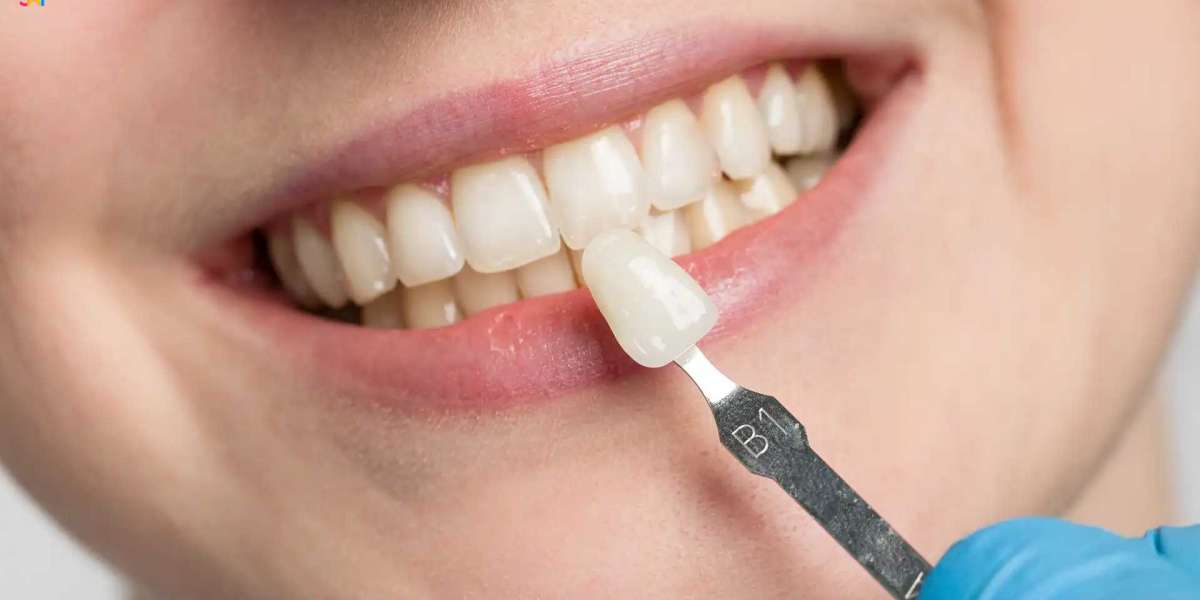If you're exploring ways to improve your smile, you're likely asking what to know before getting composite veneers. Composite Veneers in Dubai are a popular cosmetic solution for fixing chipped, discolored, uneven, or slightly misaligned teeth. They're less invasive than porcelain veneers and can often be done in a single visit. But before you make your decision, it's important to understand what the process involves, what to expect, and whether they’re the right choice for your needs.
Understand What Composite Veneers Are:
Composite veneers are thin layers of tooth-colored resin applied directly to the front surface of your teeth. Unlike porcelain veneers, they don’t require lab manufacturing and are sculpted and bonded chairside by your dentist.
Key features include:
Made from composite resin, similar to white filling material
Applied directly to teeth and shaped manually
Ideal for correcting minor flaws, chips, gaps, or discoloration
Typically completed in one appointment
Less costly than porcelain alternatives
Understanding the basics will help you set realistic expectations for appearance, durability, and maintenance.
Evaluate Whether You’re a Good Candidate:
Not everyone is a perfect candidate for composite veneers, so your dentist will evaluate your teeth and oral health before proceeding.
You might be suitable if you have:
Healthy teeth and gums without gum disease or decay
Mild to moderate cosmetic issues like stains, small gaps, or chipped teeth
Good oral hygiene habits to maintain the veneers
Realistic goals about aesthetics and longevity
A bite that doesn't exert too much pressure on the front teeth
Those with severe misalignment or grinding habits may need alternative treatments or protection like a night guard.
Know the Procedure Steps:
Getting composite veneers is a relatively quick and comfortable process, but knowing what happens during the appointment helps you feel more prepared.
Typical steps include:
Initial consultation and smile planning
Tooth cleaning and minor preparation (if needed)
Layering and shaping of composite resin by hand
Curing each layer with a special light
Final polishing for a natural look
Most appointments last between 1 to 3 hours depending on the number of teeth treated.
Consider Longevity and Care:
While composite veneers offer a fast and affordable smile makeover, they don’t last as long as porcelain and require more maintenance.
Things to keep in mind:
Average lifespan is 4–8 years with proper care
They are more prone to staining than porcelain
May need touch-ups or repairs over time
Avoiding hard or sticky foods helps prevent chipping
Daily brushing, flossing, and dental checkups are essential
Knowing how to care for them properly will help extend their life and keep your smile looking fresh.
Weigh the Pros and Cons:
Like any cosmetic procedure, Composite Veneers Treatment come with advantages and limitations. Understanding these will help you make an informed choice.
Pros include:
Quick results in one visit
Minimally invasive, often with no enamel removal
Reversible in many cases
Lower cost compared to porcelain
Customizable during the same appointment
Cons may involve:
Shorter lifespan and durability
Staining over time from coffee, tea, or smoking
May not be suitable for major cosmetic issues
Require occasional maintenance and polishing
Your dentist will help weigh these factors based on your goals and lifestyle.
Final Thoughts: What to Know Before Getting Composite Veneers
To wrap up, knowing what to know before getting composite veneers can make a big difference in your overall satisfaction with the treatment. Composite veneers are a versatile, affordable, and fast solution for enhancing your smile—especially if you're looking for something minimally invasive and reversible.
Here’s a quick summary of key things to consider:
Know the materials and how the procedure works
Ensure you’re a suitable candidate with good oral health
Understand the aftercare requirements
Set realistic expectations for how long they’ll last
Weigh the benefits against potential drawbacks
Discuss options with a qualified cosmetic dentist
By asking the right questions and doing your research, you’ll be better prepared to achieve a smile you’ll love—without surprises along the way.




